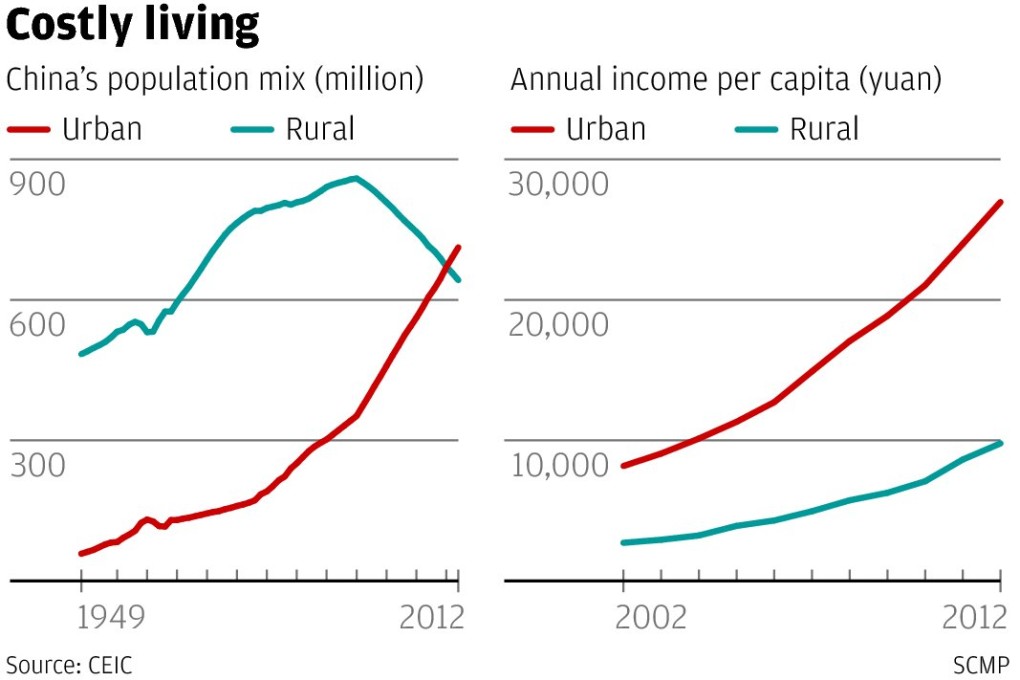Monitor | China's urbanisation push runs into trouble before its start
It could backfire spectacularly if new urban residents are left deprived of their former ability to make a living from the land

Li Keqiang's flagship economic policy is running into problems even before its official launch.
Although the Chinese premier's urbanisation plans will not be rolled out until a party meeting scheduled for this autumn, they are already provoking opposition from local government officials and drawing criticism from economic analysts.
That's awkward for Li, who on his appointment in March made shifting more of China's rural population into cities the centrepiece of his economic rebalancing programme, declaring "urbanisation will usher in a huge amount of consumption".
At first glance Li's policy appears to make good sense, considering that China's explosive economic expansion of recent decades has accompanied the rapid growth of the country's urban population.
City dwellers are more productive than their cousins in the country, so they earn higher incomes. What's more, the holders of urban residence permits, or , enjoy better access to housing, health care, unemployment insurance and pensions, while their children get a better education.
As a result, they save less of their income as a precaution against hard times ahead, and spend more. So, reason China's leaders, if we move more people into the cities and give them urban , they will both earn more and spend more of what they earn, powering the next phase of consumption-driven economic growth.

